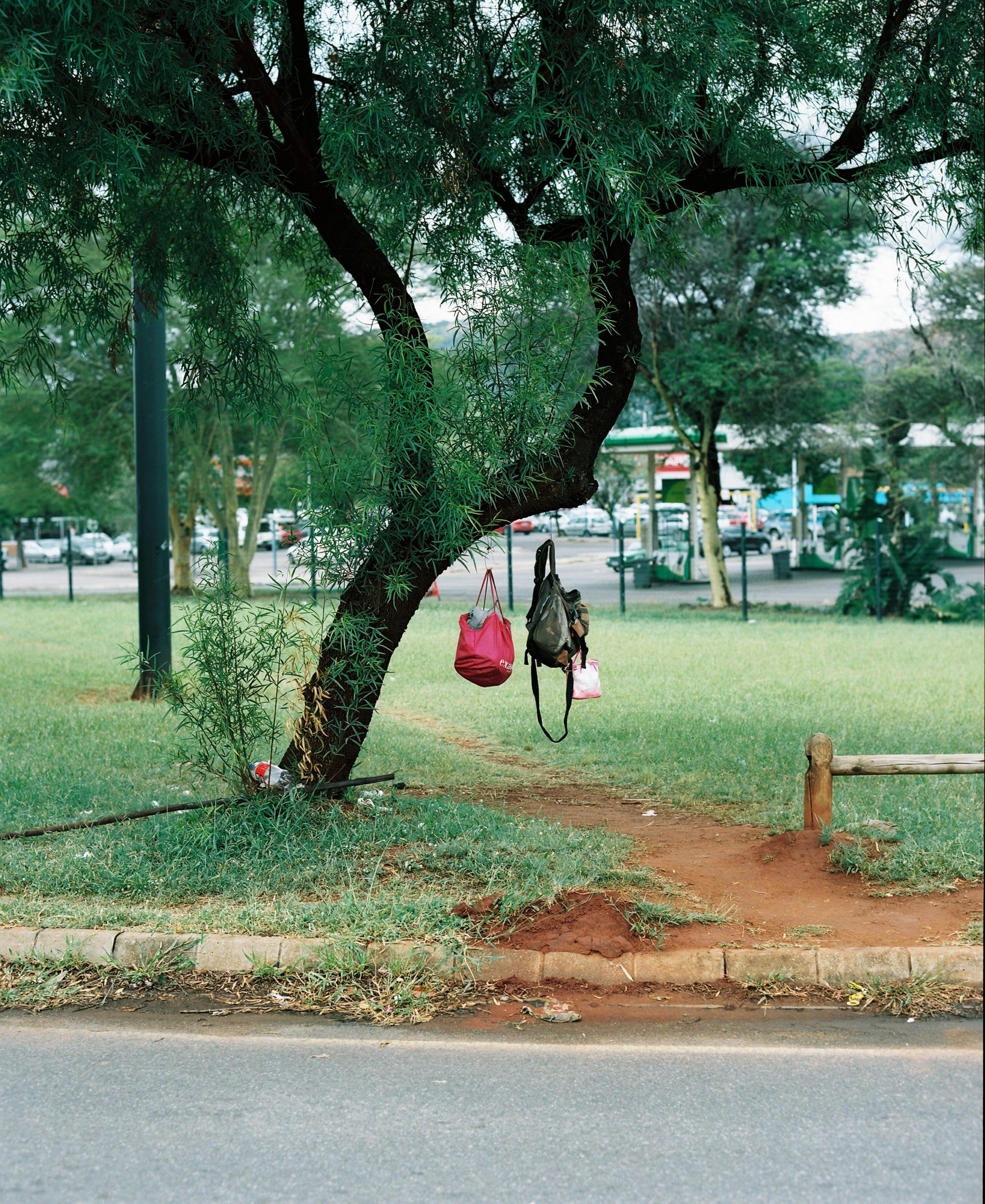A portrait of life in South Africa’s ‘white-only’ squats
- Text by Phil Kneen
- Photography by Phil Kneen

Plakkerskamp is a photo series that documents both the white squatter camps and white-only communities that have developed in South Africa. These images, taken around Pretoria and Johannesburg, represent a fraction of the estimated 450+ squatter camps in the country.
I grew up, and still live, on the Isle of Man. I’m based and work out of Peel, a small fishing town on the west coast of the Island.
In 2015, I spent a couple of weeks over Christmas living with and documenting migrants in the Jungle – the enormous makeshift camp that grew to a population of 7000, situated on the outskirts of Calais, France. After publication, I noticed a few comparisons made to the townships and white squatter camps in South Africa. I was aware of the former, but not the latter.
I went to South Africa to document people in a situation that has gone broadly unreported throughout the rest of world. I like to approach any project – whether it’s an individual portrait or a long-term photo-essay – without any preconceived ideas or rigid outlines. So the only real preparation was booking flights, arranging accommodation in Pretoria and organising a fixer.


My fixer, BJ, would approach anyone who I wanted to photograph and introduce himself and then introduce me. Afrikaans is the first language of most of these people – although a few did speak English – so most of the explaining was done by BJ. The majority of people we approached agreed to be photographed, although some less enthusiastically than others. Anyone who didn’t want to be involved would calmly say, “Nee dankie” (no thank you). On a few occasions, after someone had refused, I’d shake their hand, smile and say thank you, and then the next minute I’d be inside their home, photographing them and whatever else I liked.
By far, the most prominent misconception was that, on entering the squatter camps, I’d be greeted with hostility and suspicion. It’s understandable given some of the local news coverage these people have received. As a result, the prominent concern that the residents had was that they didn’t want images used on social media to depict them in a negative or derogatory light, so openness and honesty about why I was making the images were important from the outset.


I didn’t address racism with anyone that I photographed. However, it did enter conversations I had with white South Africans who I met during my stay. The general opinion didn’t vary a great deal: Black Economic Empowerment (BEE) is a programme launched by the South African government to redress the inequalities of Apartheid. It aims to give previously disadvantaged groups employment, but it appears to have caused more divisions. Many of the people I photographed believed that white, blue-collar workers were being replaced by black workers, regardless of experience or qualification.
An opinion which resonates throughout the world is that the white South Africans – predominantly Afrikaners – in some way ‘deserve everything they get’ for their treatment of black South Africans over 50 years of Apartheid. But what’s undeniable is that wherever you look around Pretoria and Johannesburg, the situation could not be any further away from Nelson Mandela’s vision of a ‘Rainbow Nation.’
I class myself as a documentary photographer, and I went to South Africa to document people in a situation that has gone broadly unreported throughout the rest of world. I only want to ‘show’, regardless of any political or historical bias. Viewers can, and will, come to their own conclusions.







Enjoyed this article? Like Huck on Facebook or follow us on Twitter.
You might like

Jake Hanrahan: “Boys can cry, but we don’t all fucking want to”
Hard Feelings — In the latest edition of our column on masculinity and fatherhood, Rob Kazandjian speaks to the conflict filmmaker-journalist and Popular Front founder about his childhood, the found family and community at his Muay Thai gym, and the “complete counterculture” of ‘no rules’ fighting.
Written by: Robert Kazandjian

Euphoric portraits of queer joy and resistance at Trans Pride Brighton
Let us piss — Now over a decade old, the event grew to become Europe’s largest trans pride march. In a year when trans rights have come under the microscope more than ever, we went to this year’s edition, finding grassroots unity and collective rage.
Written by: Ella Glossop

Remembering the radical anti-nuclear Greenham Women’s Peace Camp
Life at the Fence — In the early ’80s, a women’s only camp at an RAF site in Berkshire was formed to protest the threat of nuclear arms. Janine Wiedel’s new photobook revisits its anti-establishment setup and people.
Written by: Miss Rosen

A new documentary traces the rise, fall and cratering of VICE
VICE is broke — Streaming on MUBI, it’s presented by chef and filmmaker Eddie Huang, who previously hosted travel and food show Huang’s World for the millennial media giant.
Written by: Ella Glossop

Warm, tender photos of London’s amateur boxing scene
Where The Fire Went — Sana Badri’s new photobook captures the wider support networks and community spirit around the grassroots sport, as well as the significance of its competitions to the athletes who take part.
Written by: Isaac Muk

We are all Mia Khalifa
How humour, therapy and community help Huck's latest cover star control her narrative.
Written by: Alya Mooro

